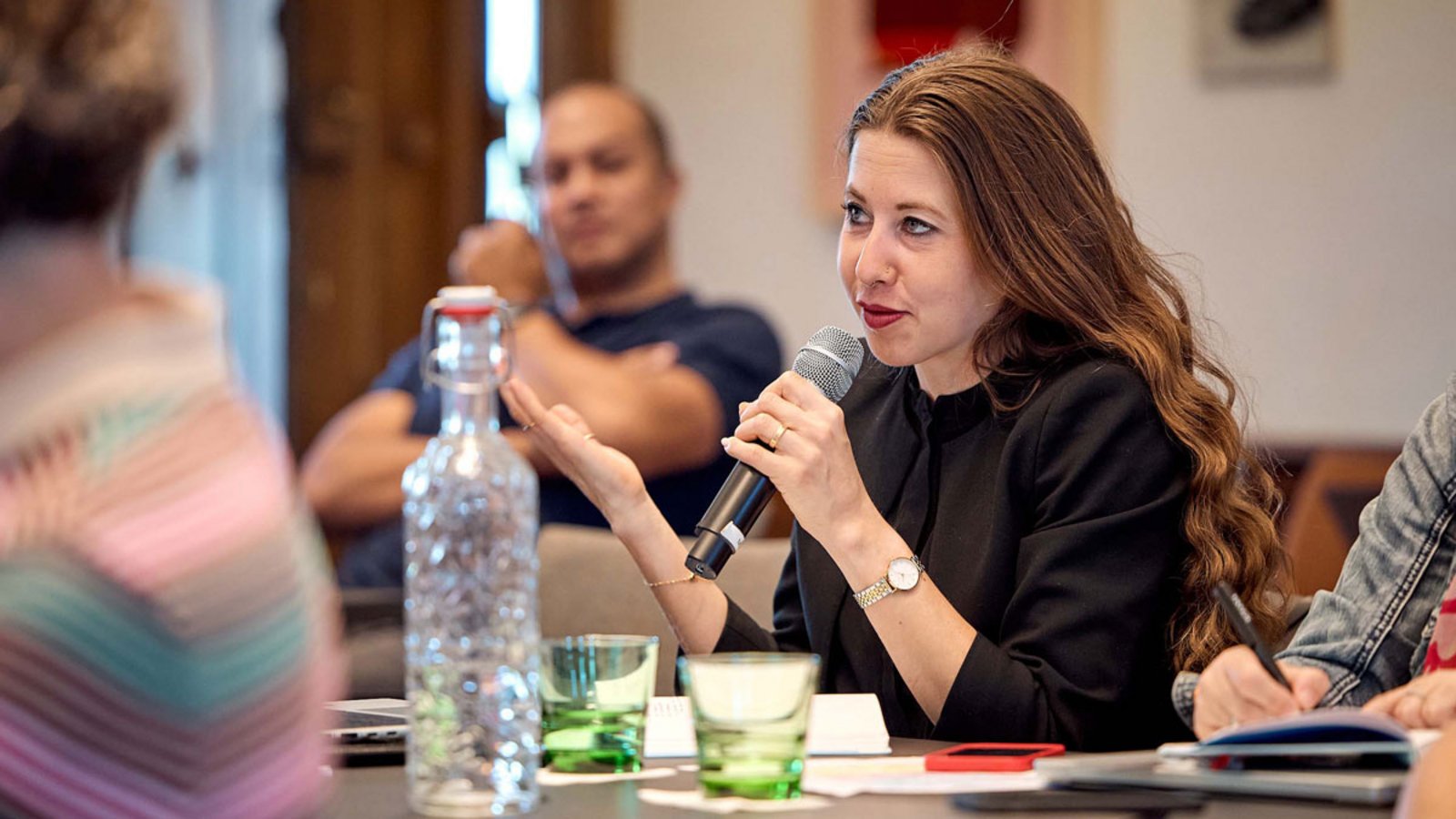 Saskia De Gani at Cohort 5's fourth residential meeting in May 2024
Saskia De Gani at Cohort 5's fourth residential meeting in May 2024
Advancing One Health literacy and governance
Sciana Fellow Saskia De Gani (Cohort 5) reflects on her experience attending the 17th European Public Health Conference
In November, Lisbon, Portugal, hosted the 17th European Public Health (EPH) Conference, uniting public health professionals, policymakers, and researchers under the theme “Sailing the waves of European public health: exploring a sea of innovation”.
Guided by the conference’s focus on sustainability, health equity, collaboration, health data, and citizen empowerment, participants from diverse backgrounds presented their work and together explored ways to bridge science, policy, and communities for a healthier future for all.
The conference not only underscored the importance of innovation but also called for actionable steps to ensure inclusivity and impact across public health systems.
As a representative of Cohort 5’s working group on “One Health Literacy and Governance”, I presented a poster highlighting the output of our two-year project within the Sciana programme.
The poster and published abstract showcased our findings on One Health literacy and governance of health leaders across the UK, Germany and Switzerland following the pandemic. The poster also highlighted our suggested framework on how health literacy and leadership can reinforce effective governance to deal with One Health challenges after triggering events like the COVID-19 pandemic.
With this work, we were able to present an innovative and interdisciplinary approach to tackle future One Health challenges. Our working group’s discussion, centred on fostering cross-sector collaboration and leadership, resonated strongly with the conference themes and goals.
Key conference themes relating to our work
The conference advocated for inclusive and cost-effective solutions that benefit all sectors of society and need strong leadership. Many sessions emphasised innovative technologies and approaches, from digital health to citizen-driven care models. Moreover, sustainability was a recurring focus, aligning with our work on One Health.
In one plenary session on “One Health in Europe: from concept to practice”, the speakers emphasized that One Health must evolve into a practical tool to tackle our health challenges. In this session, the European Commission’s Group of Chief Scientific Advisors launched their scientific opinion, “One Health Governance in the European Union”, based on the evidence review report of the same name.
They provided six recommendations to support the successful implementation of policies deriving from a One Health approach, focusing on the forms of management and cross-sectoral collaborations that are crucial to One Health Governance in Europe.
These recommendations are aligned in a roadmap connecting top-down governance and policies and bottom-up practical prerequisites to enhance existing structure and current initiatives towards the implementation of One Health.
The first three recommendations – definition, coordinated governance and policy coherence – show the prerequisites that need to be met and the provisions that need to be developed at the governance level to define, plan and implement appropriate One Health policies.
The second three recommendations – education, transdisciplinary research and integrated infrastructure – focus on capacity building, indicators, surveillance tools and practice that that are needed to support and advance the developments around One Health.
In line with these recommendations, the conference also emphasised that public health policies must prioritize health equity while addressing social, environmental, and commercial determinants of health to ensure long-term resilience.
Moreover, many participants emphasised the need to break silos and foster collaboration between governments, communities, and the private sector to tackle complex public health challenges. In addition, the important role science plays in guiding public health interventions became clear.
Evidence-based approaches, like the framework we presented, are essential tools for building resilient health systems. Finally, citizen empowerment emerged as a vital element of innovation as well and should be placed at the heart of health systems – whether through greater access to health data or involvement in care decision-making.
A call to action
The conference ended with a call to action for all stakeholders to advance public health in Europe by collectively promoting inclusive, cost-effective innovations and implementing sustainable practices that prioritise equity and resilience. It also emphasised strengthening collaboration across sectors and communities, championing evidence-based, impactful policies, and empowering citizens to take an active part in their health management.
My experience at the 17th EPH Conference left me inspired and motivated. Presenting our work from Sciana alongside thought leaders from across Europe reaffirmed the vital role of collaboration and innovation in driving public health progress. Achieving a sustainable and better future health system requires the commitment of all of us.
In this endeavour, networks like Sciana play a crucial role. By fostering meaningful connections among health leaders from different countries, Sciana creates a unique platform for exchanging ideas, sharing expertise, and cultivating innovative solutions to complex public health challenges.
The collaborative spirit and interdisciplinary dialogue encouraged by Sciana are essential for navigating the waves of change toward a more resilient and healthier tomorrow for all.
This output was created by Sciana Fellow Saskia De Gani as part of their Cohort 5 Sciana Challenge. The views and opinions expressed in this piece of work do not necessarily represent the views of their organisations, Sciana: The Health Leaders Network, nor those of the Sciana Network's three funding foundations.




